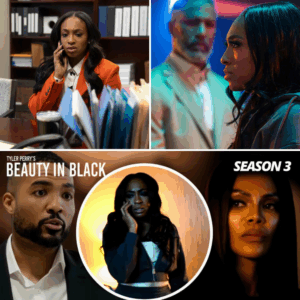In the quiet corners of country music’s vast landscape, where legacies echo through generations, moments of genuine connection can feel like a gentle strumming of the heartstrings. On September 19, 2025, at the Schooner Fall Classic in Norman, Oklahoma—a star-studded charity softball game benefiting the Toby Keith Foundation—such a moment unfolded. American Idol Season 23 runner-up John Foster, the 19-year-old Louisiana powerhouse whose voice has already begun to carve its own path in Nashville, did more than perform. Armed with just his acoustic guitar and a deep well of respect, he sat down in front of Toby Keith’s wife, Tricia Covel, and daughter, Krystal Keith. What followed was a tender cover of “Don’t Let the Old Man In,” the poignant ballad that marked Toby Keith’s final televised performance before his passing in February 2024. As Foster’s fingers danced across the strings, the room fell into a hush, and tears glistened in the eyes of those who knew the man behind the music best. It was a tribute not of spectacle, but of soul—a bridge between a rising star and an eternal icon.
The Schooner Fall Classic isn’t just any event; it’s a cornerstone of Toby Keith’s enduring philanthropy. Held annually at the University of Oklahoma’s L. Dale Mitchell Park, the softball showdown draws celebrities, athletes, and fans to raise funds for the OK Kids Korral, the foundation’s Oklahoma City facility that provides free housing for families of children battling cancer. Since its inception in 2009, the event has generated millions for pediatric care, embodying Keith’s commitment to giving back. This year’s edition, the first since Keith’s death, carried extra weight. Headliners like Blake Shelton and Eric Church took the field, but the emotional undercurrent pulsed strongest offstage. Foster, fresh from his Idol finale in May, had arrived in Norman with a mission: to honor the man whose music had shaped his own artistry. “Toby was a giant—not just in sound, but in spirit,” Foster later shared on social media. “Singing for his family felt like closing a circle.”
John Foster’s ascent on American Idol was nothing short of meteoric. Born July 10, 2006, in Addis, Louisiana—a small town nestled along the Mississippi River where sugarcane fields stretch like endless verses—he grew up in a world where music was as essential as breathing. The son of a high school band director and a choir teacher, Foster was immersed in harmonies from the cradle. By age 10, he was fronting local garage bands, belting out Garth Brooks and George Strait covers at family barbecues. High school at West Ascension High honed his raw talent; football scholarships loomed, but the stage called louder. “I remember the first time I heard Toby’s ‘Should’ve Been a Cowboy’ on the radio,” Foster recounted in an Idol confessional. “It hit like a freight train—storytelling with grit. That’s when I knew country was my road.”
His Idol audition in Nashville, aired in early 2025, was a revelation. At 18, Foster strode onstage with a cowboy hat tipped low and a voice that belied his youth: rich, resonant, laced with a Southern drawl that evoked bayous at dusk. He chose a double-shot—”Don’t Rock the Jukebox” by Alan Jackson and “Goodbye Time” by Conway Twitty—earning unanimous golden tickets from judges Lionel Richie, Katy Perry, and Luke Bryan. “Boy, you’ve got that old-soul fire,” Bryan declared, his own twang approving. Hollywood Week blurred into a montage of triumphs: duets with mentors, tearful family calls, and a Top 24 performance of “Wagon Wheel” that had Perry wiping her eyes. But it was the Top 10’s “Louisiana Night” theme that sealed his star status. Foster delivered Randy Newman’s “Almost There” from The Princess and the Frog, infusing the Disney ditty with gumbo-soaked soul, followed by Brooks & Dunn’s “Believe”—a faith-fueled ballad that mirrored his own spiritual leanings. “This kid’s got the heart of Louisiana in every note,” Richie praised.
The finale on May 18, 2025, was Foster’s pinnacle—and his nod to Keith. In the three-hour extravaganza at Disney’s Dolby Theatre, the Top 3 (Foster, Baylee Littrell, and Victor Solomon) vied for the crown. Mentored by Jelly Roll for the patriotic round, Foster selected Keith’s “Courtesy of the Red, White and Blue (The Angry American).” Dedicating it to his veteran grandfathers in the audience, he poured out a performance raw with patriotism and power. The studio thundered; confetti fell as he finished runner-up to Littrell. “John’s not just a singer—he’s a storyteller with staying power,” Perry told Billboard post-show. That night launched him: a development deal with Big Machine Records, a slot opening for Keith Urban’s fall tour, and whispers of a debut EP by year’s end. Yet, amid the buzz, Foster stayed rooted, crediting Keith as his “North Star.” “Toby taught us to sing with conviction, to fight for what matters,” he said.
Toby Keith’s shadow looms large over modern country, a colossus whose 30-year career blended barroom anthems with battlefield ballads. Born Toby Covel in 1961 in Clinton, Oklahoma, he bootstrapped from oil rigs to Oklahoma City honky-tonks, signing with Mercury Records in 1993. Hits like “Should’ve Been a Cowboy” (1993’s No. 1 smash) and “I Wanna Talk About Me” defined ’90s country swagger. But Keith’s true mark was resilience: post-9/11, “Courtesy of the Red, White and Blue” became a rally cry, earning him the USO Merit Award for entertaining troops overseas. He headlined 11 USO tours, performing in war zones from Iraq to Afghanistan. Philanthropy defined him too—the Toby Keith Foundation, founded in 2008, has housed over 5,000 families at OK Kids Korrals in Oklahoma City and Boston. Married to Tricia Lucas since 1984 (after adopting her daughter Shelley), Keith raised three kids: Shelley Covel Rowland, Krystal Keith, and son Stelen. Krystal, a singer in her own right with hits like “Daddy Dance with Me,” often joined her dad onstage, their duets a family hallmark.
The shadow of illness fell in 2021: a stomach cancer diagnosis that Keith kept private until his 2022 People’s Choice Country Awards appearance. There, emaciated but defiant, he debuted “Don’t Let the Old Man In”—a sparse, aching waltz inspired by Clint Eastwood’s query during a golf outing: “How do you keep the old man from coming in?” Penned for Eastwood’s film The Mule (2018), the song became Keith’s meditation on mortality. Acoustic guitar and gravelly baritone carried lyrics like “And I knew all of my life / That someday it would end,” performed with a vulnerability that silenced the room. It was his last TV outing, a standing-ovation closer that left audiences—and Eastwood—in tears. Keith passed on February 5, 2024, at 62, surrounded by family. Tributes poured in: Carrie Underwood’s onstage eulogy at the ACM Awards, a star-studded NBC special Toby Keith: American Icon in August 2024 featuring Jelly Roll and Luke Bryan. Krystal’s rendition of the song in that special stunned viewers, her voice cracking as she shared, “Dad said this was his favorite—it’s like he’s singing through me.”
Fast-forward to September 2025: Foster’s visit to Keith’s gravesite at West Meadowlawn Cemetery in Oklahoma City set the stage for the tribute. The stone, a striking bronze plaque etched with an American flag motif and a photo of Toby with Tricia, overlooks a serene pond—a fitting repose for the man who sang of wide-open spaces. Foster, guitar slung over his shoulder, laid a bouquet of red, white, and blue roses before heading to the Classic. Backstage at the softball field, under a canopy of twinkling lights and OU Sooners banners, he found Tricia and Krystal. Tricia, 63 and a pillar of quiet strength, has shouldered the foundation’s helm since Toby’s death, her grace a constant in grief’s gale. Krystal, 38, balances motherhood and music, her album Get Along (forthcoming in 2026) channeling her father’s fire.
Foster settled on a folding chair, the guitar’s neck catching the golden hour glow. “This one’s for Toby,” he murmured, fingers finding the opening chords. The melody unfurled soft and steady: “Well, my little darlin’, don’t you think it’s time? / Hope you finally found the love you seek.” His voice, a warm tenor honed on Idol stages, wrapped the words in reverence—no showboating, just truth. Tricia, in a simple denim jacket pinned with an OK Kids Korral badge, clasped her hands, eyes downcast as the bridge swelled: “Don’t let the old man in / I wanna live me some more.” Krystal, beside her in a Toby Keith Foundation tee, wiped a tear, her shoulders rising with a deep breath. The final notes hung like a prayer, met by applause that felt intimate, sacred.
In the aftermath, Tricia enveloped Foster in a hug. “You captured him perfectly, son—that’s Toby’s heart right there,” she whispered, voice thick. Krystal nodded, adding, “Dad would’ve grabbed that guitar and jammed with you. Thank you for keeping his light on.” The moment, captured on video by a foundation crew and shared across social media, exploded online. #JohnForToby trended with 2.5 million views in hours; fans posted, “Chills—John’s voice is the next great storyteller.” Blake Shelton, fresh from the field, tweeted: “Proud of you, kid. Toby’s smiling down.” For Foster, it was validation beyond Idol votes. “Seeing their faces… it wasn’t about me. It was about passing the torch,” he reflected.
This encounter underscores country’s communal spirit: a genre where loss weaves into legacy, and young voices amplify the elders’. Keith’s influence ripples in Foster’s style—the unapologetic twang, the tales of home and heartache. As Foster eyes his EP (Bayou Echoes, slated for December 2025) and a slot at the 2026 CMA Fest, he carries Keith’s ethos: sing loud, give back, never let the old man in. For Tricia and Krystal, it’s a balm in bereavement, a reminder that Toby’s music lives in every chord struck in his name. In Norman that night, under Oklahoma stars, a runner-up became a reverent heir—and a family’s grief found a melody of healing.

